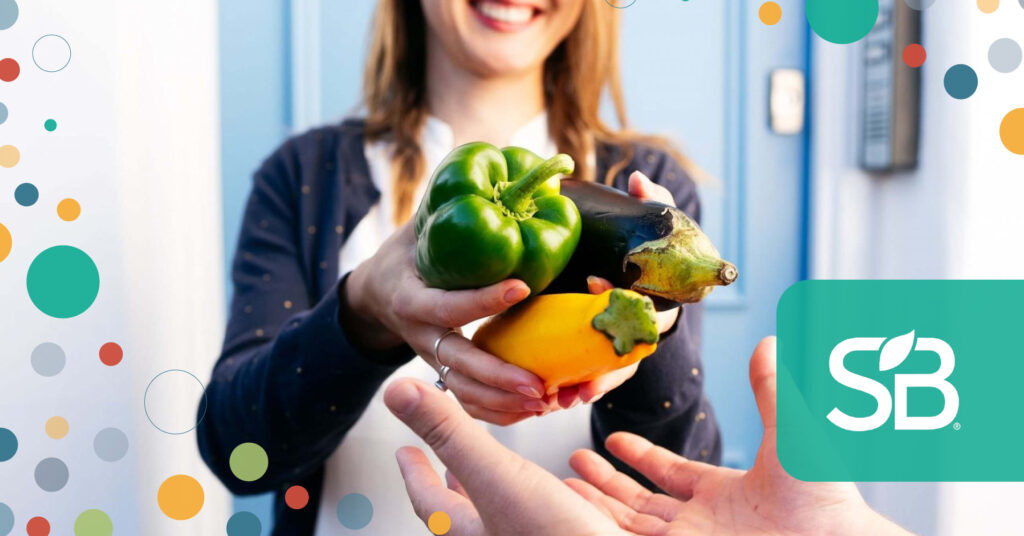Is It Time for Old Solutions to New Problems?
4 min read
Tessa Clarke
Published 15 hours ago.
About a 5 minute read.
Image: Olio
Brand Provided
It’s clear we need a fundamental shift in how we perceive and manage our finite
resources. But as more and more businesses shift away from profit at all
costs to profit with purpose, hopefully we will all soon ‘share more, waste
less.’
What’s weirder: Sharing food or wasting food?
A glance in the garbage from most households, supermarkets and restaurants
answers this unequivocally: We’re definitely not sharing our extras anymore. To
give some indication of the scale of the problem, one-third of all the food we
produce globally
each year goes to waste, which is worth over $1 trillion; in the US,
approximately 40
percent of the entire
food supply — nearly 60 million tons worth $218 billion — is wasted annually.
The environmental impact of this is absolutely enormous: If it were to be a
country,
food waste would be the third-largest source of greenhouse gas emissions after
the US and China. And globally, food
waste
generates 4-5 times the greenhouse gas emissions generated by the aviation
industry.
Shockingly, coexisting alongside this widespread waste is equally widespread
hunger: According to the World Health Organization, over 800 million
people
go to bed hungry; and in 2023, 44 million US
households
struggled to get enough food to feed everyone.
Partnerships that Create Positive Impact & Important Behavior Change
Join us as leaders from Diageo, ReFED and the Impactful examine case studies of collaboration delivering tangible benefits while also driving virtuous cycles of behavioral shifts among customers, innovation partners, suppliers, vendors and local communities— Wed, May 8, at Brand-Led Culture Change.
The existence of such a painful paradox indicates something very broken in our
food systems. And it raises all sorts of challenging moral, economic,
environmental, social and political questions as we start to think about how to
solve it. One thing I’m sure we can all agree on, though, is that we can and
must do better.
Our research shows that no one likes to throw away
food, but most people feel they don’t have any alternative. That’s because so
many of us are no longer connected to our local communities, and so don’t have
anyone to give our surplus food to. Local
restaurants
and
retailers
also find it a challenge, as it can be hard to find a quick and safe way to
redistribute unsold or unserved
food
at the end of each day.
At Olio, we use an “old” solution to our terribly
modern waste problem. It connects people with their neighbors so they can give
away, rather than throw away, their spare food. With over 100,000 volunteers,
the service also collects and redistributes surplus food from local businesses
such as supermarkets, schools, hospitals, corporate canteens and more.
But to really unlock the potential here, it’s clear we need a fundamental shift
in how we perceive and manage our finite resources. Specifically, the
traditional, linear model upon which our current economic system is based —
whereby goods are produced, used for a fraction of their lives, and then
discarded — which is completely unsustainable. Instead, we need to move towards
a circular-economy
model — where
waste has been designed out of the system at every single touchpoint, much like
things used to be.
And the urgency for this circular approach has never been more pressing: Recent
research shows humanity has now broken 6 out of 9 planetary
boundaries;
and Earth Overshoot Day, the day in
the year by which humanity has used all the resources the earth can replenish,
fell on August 2 last year. It seems we simply don’t have time to waste in
solving the problem of waste.
A growing number of businesses are implementing a purpose-driven approach by
giving equal weight to people, planet and profit in their decision making,
because they recognize that the relentless quest to maximize shareholder returns
— in a world where carbon emissions, pollution, biodiversity loss and resource
depletion are seemingly “free” — has left humanity on a precarious edge. And
they’ve discovered that adopting a profit-with-purpose approach can be an
enormous source of competitive advantage both in terms of attracting and
retaining talent, as well as sourcing and closing commercial contracts.
The Better Business Act’s Purpose
Dividend
report, for example, found the clear business case for profit with purpose: If
all businesses were to operate this way, it would result in an annual £149bn
boost to the UK GDP; a sevenfold increase in R&D expenditure; an £86bn
increase in capital investment; and a £5.3bn pay raise to the lowest paid, which
is worth £44 a week for minimum-wage employees. And research by B
Lab
shows widespread consumer support for this — with 72 percent of the British
public believing businesses “should have a legal responsibility to the planet
and people, alongside maximizing profits.” As every business leader knows, where
consumers lead, business soon follows.
In the 1960s, Stanford computer scientist and futurist Roy
Amara told his colleagues: “We
overestimate the impact of technology in the short term, and underestimate the
effect in the long run.” I would argue the same applies to paradigm shifts: They
can be hard to spot when you’re in them; but dial back out, and their impact is
clear. There are myriad signs that we’re swimming in the undercurrents of a
major paradigm shift — away from profit at all costs to profit with purpose —
which hopefully means, in the words of our tagline, we will all soon “share
more, waste less.”





